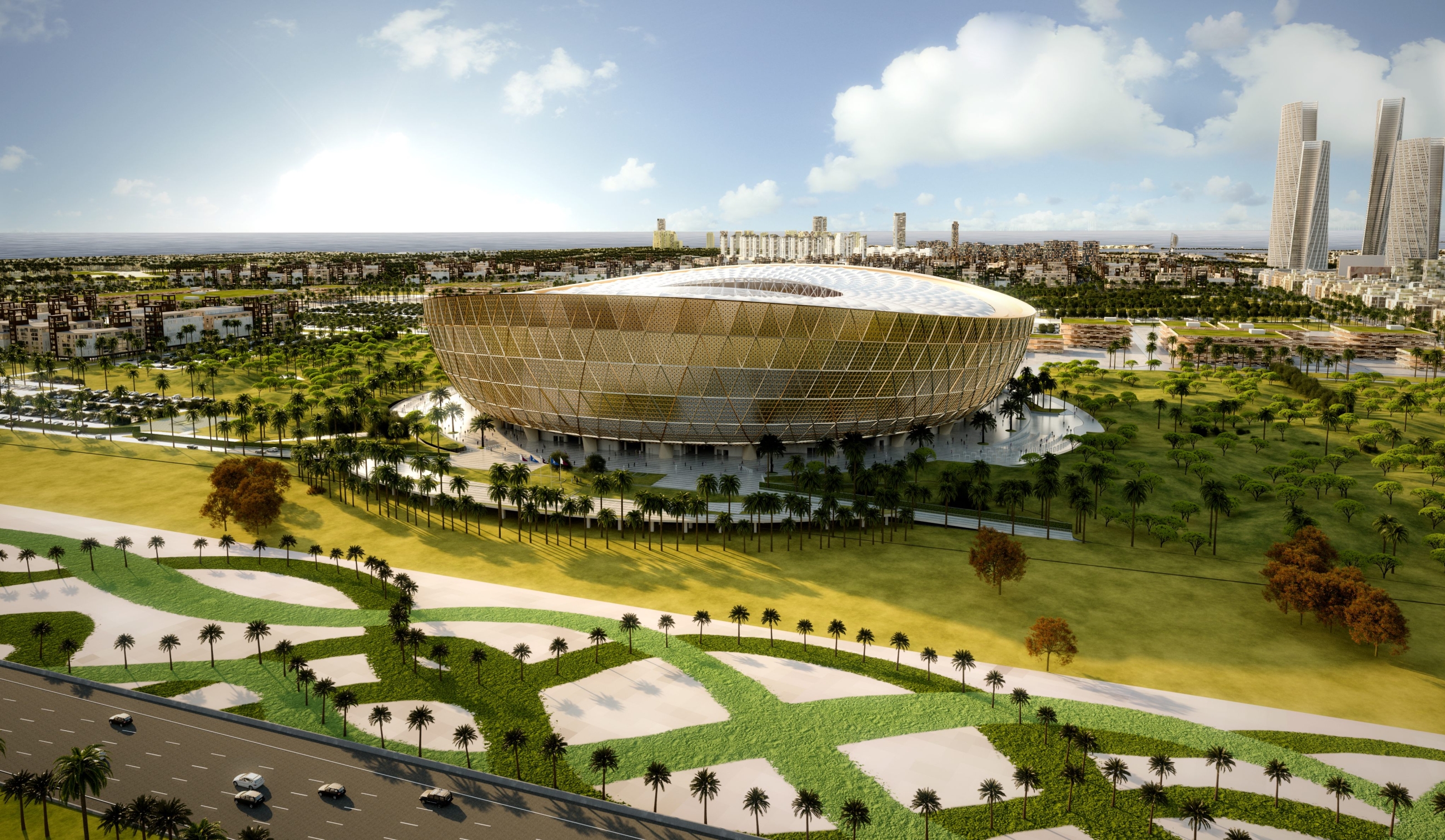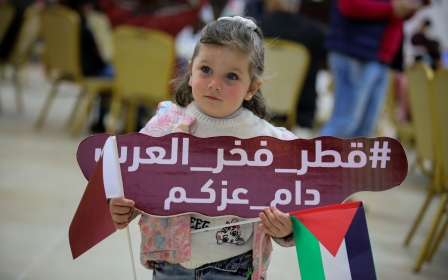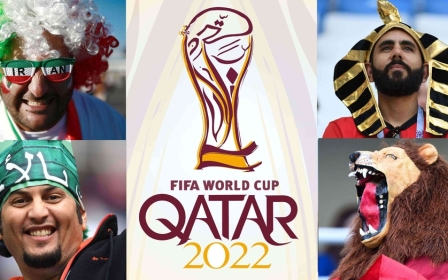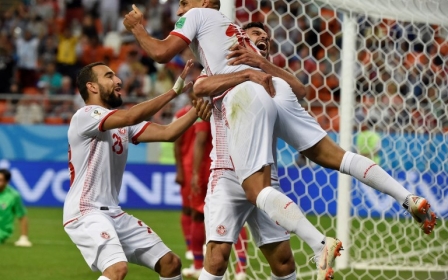UAE says World Cup could ease Gulf tensions if Qatar shares hosting

Gulf states could ease their regional blockade of Qatar if the latter allows them to host matches during the 2022 World Cup, a senior Emirati official has said.
The UAE - along with Saudi Arabia, Bahrain and Egypt - severed diplomatic, trade and travel ties with Qatar in June 2017, claiming that the state supports terrorist groups - a charge Qatar has denied.
But according to Mohammed al-Rumaithi, head of the UAE’s general sports authority, football could ease the crisis.
“My message to them [Qatar] is: let’s take this crisis away from us and focus on football,” he told the Financial Times on Thursday.
Rumaithi’s comments come as FIFA mulls over whether to expand the tournament from 32 to 48 teams, with the The New York Times reporting on Thursday that football’s governing body is considering Oman and Kuwait - neutral countries in the dispute - as hosts for extra games.
New MEE newsletter: Jerusalem Dispatch
Sign up to get the latest insights and analysis on Israel-Palestine, alongside Turkey Unpacked and other MEE newsletters
Qatar has yet to agree to the expansion plan, which is being spearhead by FIFA head Gianni Infantino.
Though the governing body has reportedly ruled out offering extra games to countries involved in the dispute with Qatar, Rumaithi views the potential expansion as an opportunity for the UAE to take part.
“If in the future the crisis will finish, then all other countries would open their arms to welcome any groups from Qatar,” he said.
“This is Qatar’s success: they won the bid and is the host and we would only be helping. We are happy for the Qataris.”
Rumaithi’s comments come as he vies for the presidency of the Asian Football Confederation, a mini-contest between representatives from Bahrain, UAE and Qatar that is highly evocative of wider regional rivalries.
Gulf countries have long viewed sports, and in particular football, as a mainstay of their soft-power strategy.
In 2010, Qatar became the first Arab country to be awarded the coveted tournament in a bid that has since been marred by allegations of corruption.
Royals in UAE and Qatar have long basked in the glory of their ownership of leading football clubs such as Manchester City and Paris Saint-Germain respectively, but in the wake of the dispute between the countries they have increasingly deployed the sport as a political weapon.
In August 2017, months after the dispute began, Qatari-owned Paris Saint-Germain broke the world record for most expensive transfer to sign Brazilian footballer Neymar, seen as a defiant show of its supposed economic strength in the face of a potentially crippling embargo.
Months later, UAE foreign minister Anwar Gargash claimed that Qatar must shun “extremism” if it was to host the World Cup.
“Qatar’s hosting of World Cup 2022 should include a repudiation of policies supporting extremism and terrorism. Doha should review its record,” Gargash wrote on Twitter.
Gargash's remarks were a result of “petty jealousy”, Qatar said in response.
On the eve of the Asian Cup in January, a tournament which brings together national football teams on the continent, and which was hosted in the UAE this year, Emirati officials struck a more conciliatory tone.
The country was prepared to “help” Qatar host World Cup matches should the mooted expansion go ahead, a senior official said.
The different strategies employed by the UAE are aimed at either “outright stripping” Qatar of the World Cup or forcing it to host the event along with other nations, Christopher Davidson, a Gulf expert based at Durham University in the UK, told Middle East Eye.
“The UAE has (correctly) established that Qatar's rulers have allowed the World Cup to become inextricably tied to their legitimacy," he said. “We can therefore expect a range of strategies aimed at either outright stripping Qatar of the World Cup or, as a 'Plan B', forcing this kind of dilution arrangement on Qatar.
“Either way, the aim is for Qatar's rulers to take a hit: it is just a question of how big a hit the UAE and its allies will try for.”
Campaigners have decried the possibility that the World Cup could be expanded to Saudi Arabia and the UAE, countries they described as being “in the throes of cracking down on government critics and prominent human rights defenders.”
"Any expansion of the Qatar World Cup into Saudi Arabia and the UAE ought to come with a proper acknowledgement from FIFA of the need for both countries to substantially improve their human rights records", said Allen Hogarth, Amnesty International UK's head of policy and government affairs in November.
Hogarth also pointed to concerns over the treatment of construction workers in Qatar.
"Wherever the 2022 World Cup is staged, the same human rights considerations should apply - namely, that construction workers don't suffer further exploitation as the infrastructure is put up, and that basic rights like freedom of speech aren't curtailed during the lead-up to the matches themselves," he added.
Relations flared between the two countries flared again earlier this year when Qatar, a relative backwater footballing nation, thrashed the UAE 4-0 on their way to claiming the Asian Cup, as Emirati fans hurled bottles and shoes on to the pitch.
“I am very sorry for what happened, but this does not represent the UAE as a whole,” Rumaithi told the Financial Times.
FIFA is due to vote on the proposed World Cup expansion in June.
Middle East Eye delivers independent and unrivalled coverage and analysis of the Middle East, North Africa and beyond. To learn more about republishing this content and the associated fees, please fill out this form. More about MEE can be found here.




